Posts Tagged ‘horror’
FLASH FORWARD
April 10, 2017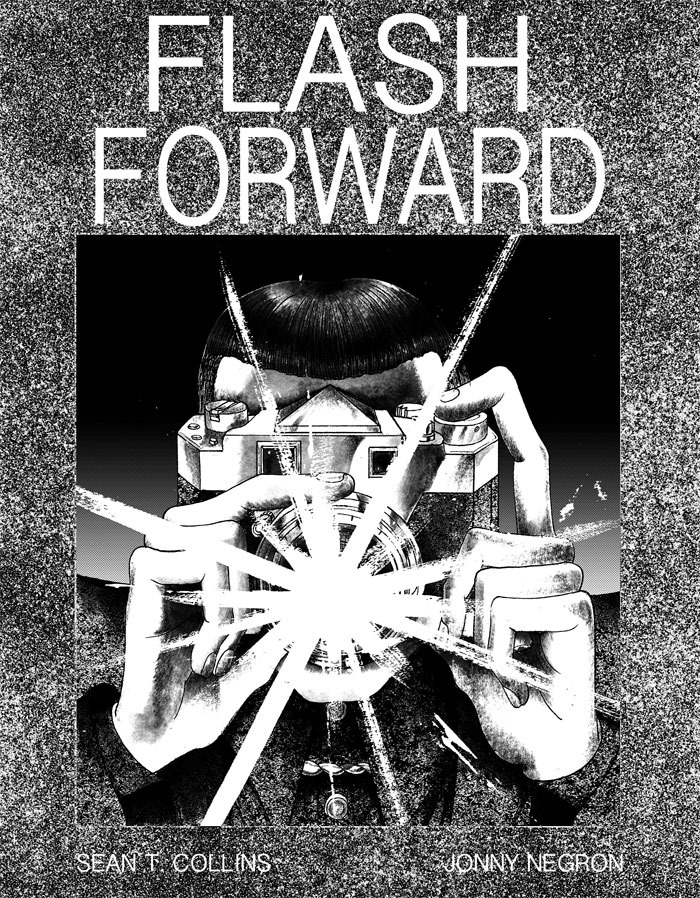
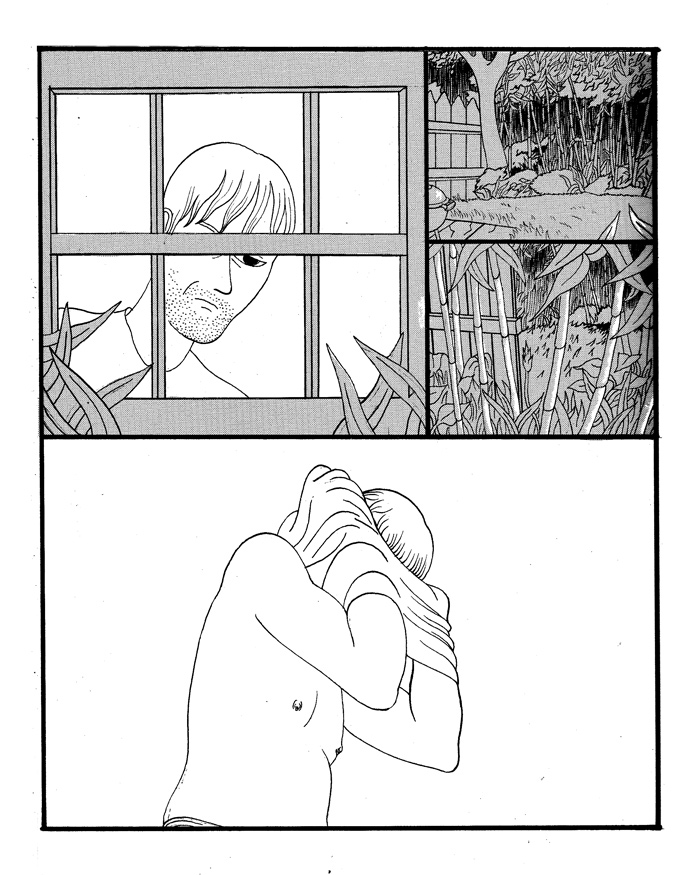
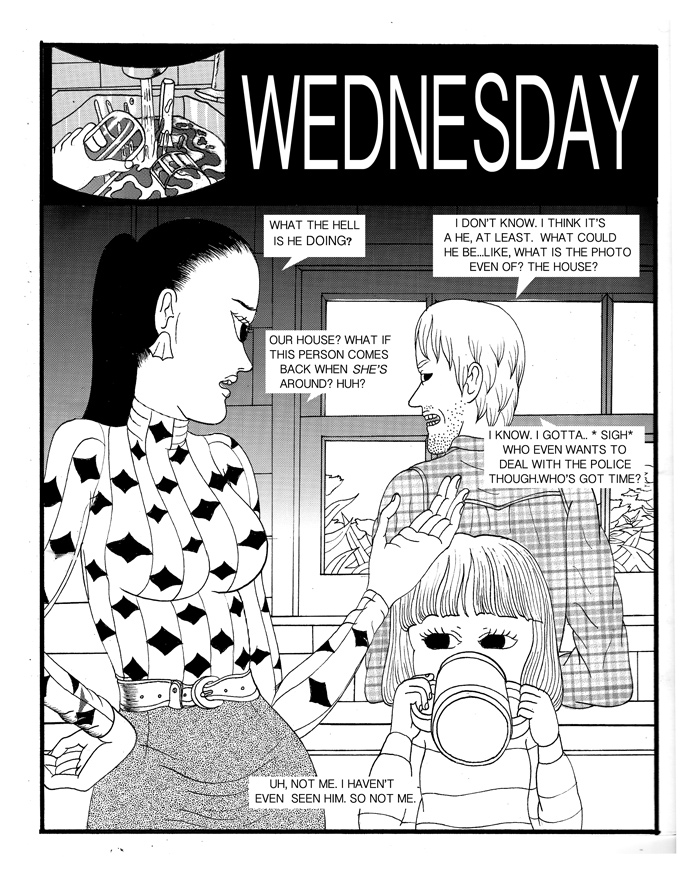
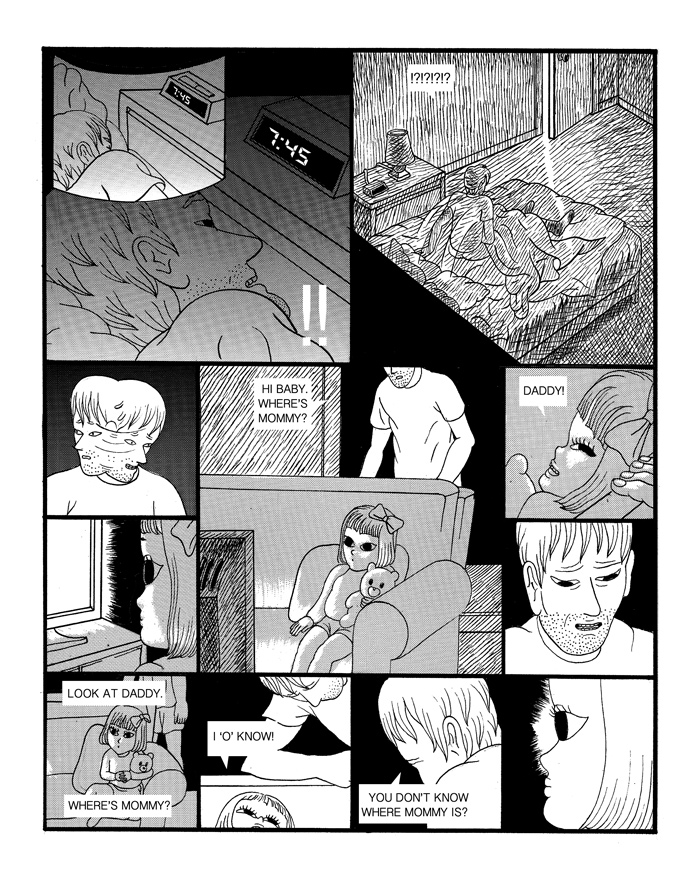
FLASH FORWARD by me and Jonny Negron. Final 10 copies. $8. First come first served. Click here and note your mailing address.
STC & MMII @ MoCCA
April 1, 2017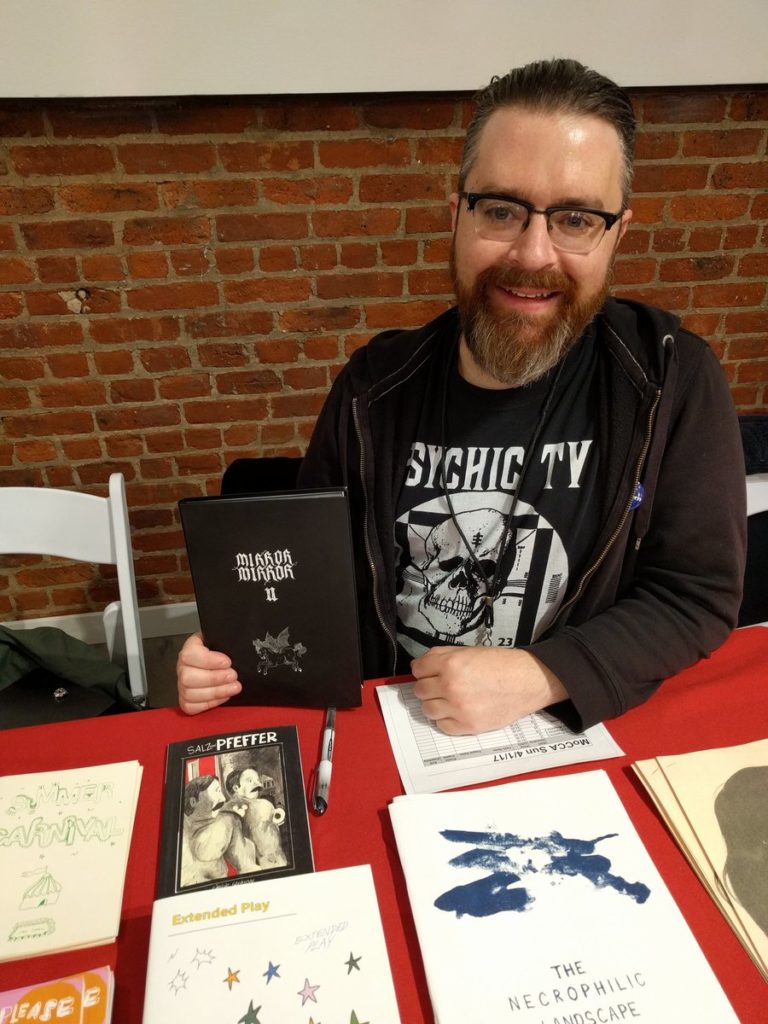
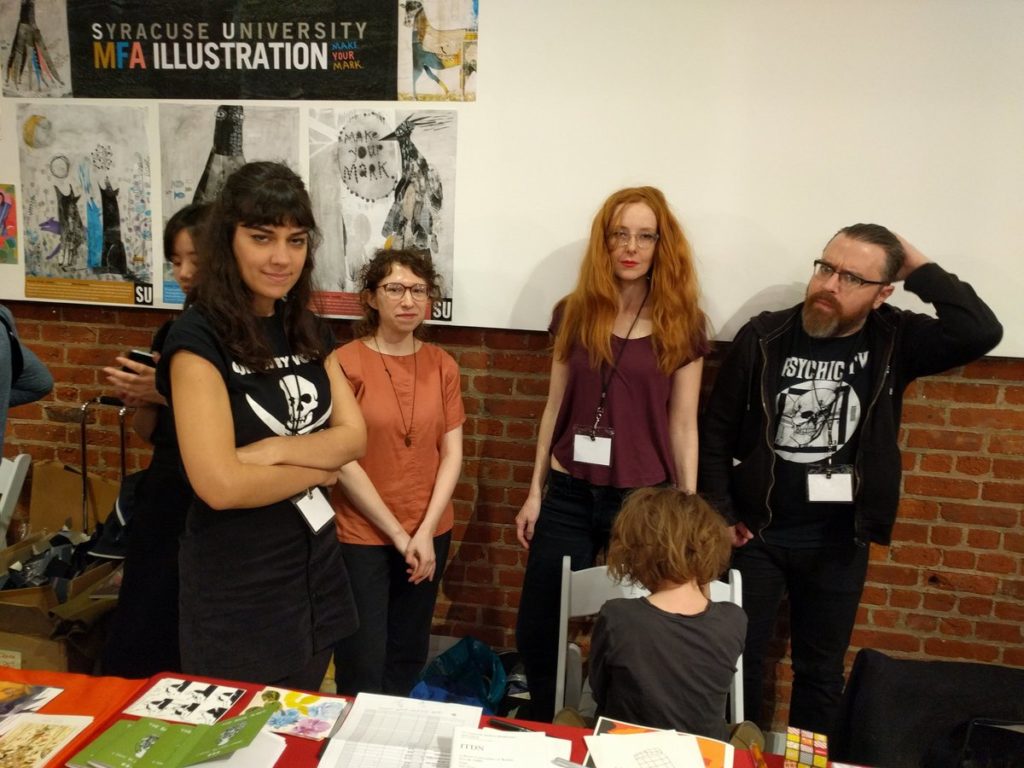
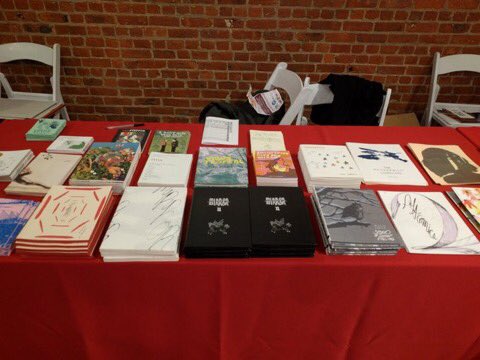
Some pics from Day One of MoCCA Fest 2017 in New York, where me and the MIRROR MIRROR II crew (that’s Laura Lannes, Lala Albert, Julia Gfrörer, and me in the middle picture) sold and signed the book. I had to leave early due to illness but I hope to be back tomorrow and I hope to see you there if i am! Either way, the kickstarter for MMII and the rest of our publisher 2dcloud’s spring lineup is entering its final hours. Now’s your chance to snap up the whole line for a pittance, but whether or not you order the books, of course every bit donated helps!
Our Kickstarter is fully funded!
March 30, 2017
Thanks to everyone who pitched in or spread the word. It means so much to us! Now our beautiful book just needs to find its way into your hands. Order today!
Bad at Sports Sunday Comics with Julia Gfrörer
March 30, 2017Max Morris: Your most recent project is co-editing Mirror Mirror II with Sean T. Collins, which is set to be released by 2D Cloud for their Spring 2017 collection. To my knowledge, this is the first anthology of comics work you’ve edited, but please let me know if I am incorrect. How was your experience of putting this book together?
Julia Gfrörer: It certainly deepened my empathy for people who regularly curate anthologies—it’s a lot of work, like herding cats. But it was also really a pleasure to work on, and gave me and Sean an opportunity to hone our vision of what matters most to us in art, writing, and comics. We’re honored to be able to work with so many incredible artists, many of whom are already well-known but have very different audiences, and get new eyes on their work.
Julia spoke to Max Morris at Bad at Sports about Mirror Mirror II, which you can purchase via our Kickstarter.
Interview: Sean T. Collins
March 30, 2017First off: wow! I haven’t had a book challenge me this much in a long time, in the sense that it tapped into some deep desires that I most often prefer to keep in the back rather than the forefront of my mind. Is this an effect that you were hoping to have on your readers?
Since I take that all as very high praise indeed, I suppose the answer is yes, it’s exactly the effect we were hoping to have. Julia and I share a lot of things—in addition to co-editing Mirror Mirror II, we live together and have a family as well—and one of them is the belief that when done right, dark and difficult work can push the reader in the direction of empathy. And our conviction is that it’s precisely by forcing the reader—and the artist, too—to confront parts of both the world and their own minds that they’d perhaps otherwise ignore or prefer to remain hidden that this kind of work makes real empathy possible. Instead of coming away reassured that you and the artist are in a sort of Good People Club where you agree that Behavior A is bad and Behavior B is good and aren’t we all enlightened to think so… I dunno, you can coast on that kind of work, you know what I mean? It lets you off the hook—again, meaning both the creator and the audience here. So in that sense we hope that the comics and art in Mirror Mirror II keep you on that hook, and I’m glad to hear it seems to have turned out that way for you.
I talked to Sarah Miller at Sequentialist about Mirror Mirror II, which you can order via our Kickstarter.
Interview: Sean T. Collins Talks Mirror Mirror II, 2D Cloud and their Kickstarter
March 30, 2017Rob: There are so many awesome horror comics. It’s one of my favorite genres, too. What makes comics such a great art form for horror?
Sean: That’s a tough question for me, because a lot of what people think of when they think of “horror comics” don’t move or frighten me at all. Mirror Mirror II is basically a who’s who of the artists who have scared us–Al Columbia, Uno Moralez, Renee French, Josh Simmons, and Julia too. Have you ever watched a horror movie, gotten to a really intensely scary part, and then been unable to resist rewinding and watching again? I definitely have, and I think the best horror comics make that compulsive instinct to face what frightens and disgusts us easy to give in to. You control the speed at which you pass through the images, so when something really sinks its claws into you, it’s entirely up to you how fast you pull those claws back out by turning the page.
I spoke to Rob McGonigal at Panel Patter about Mirror Mirror II, the horror comics and art anthology I co-edited with Julia Gfrörer. The kickstarter where you can order the book is right here.
They Are ‘Legion’: Tracking the Superhero Show’s Key Horror References
March 30, 2017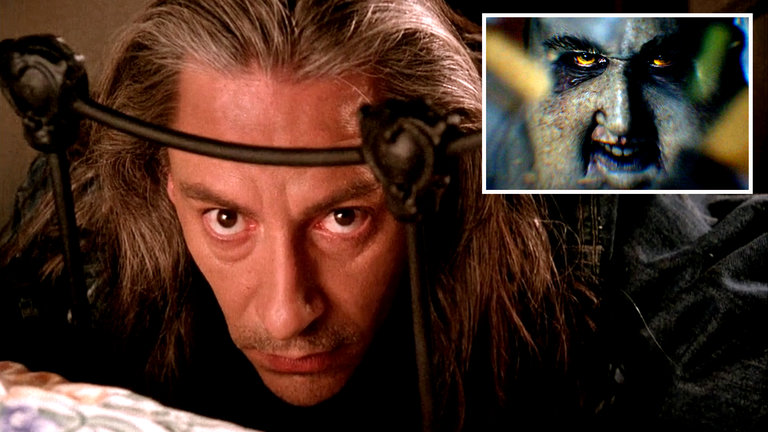
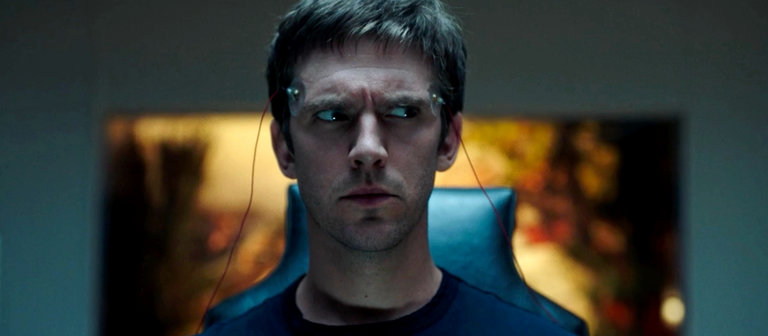
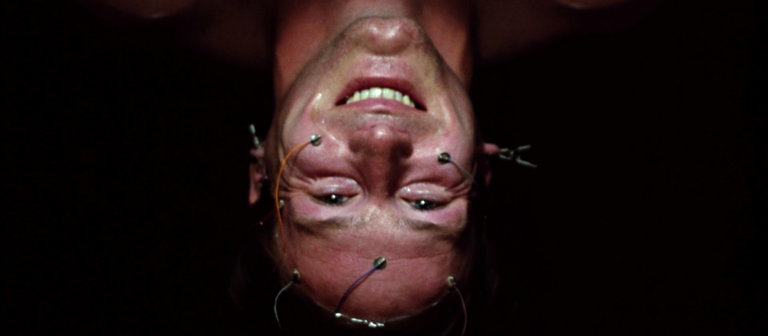
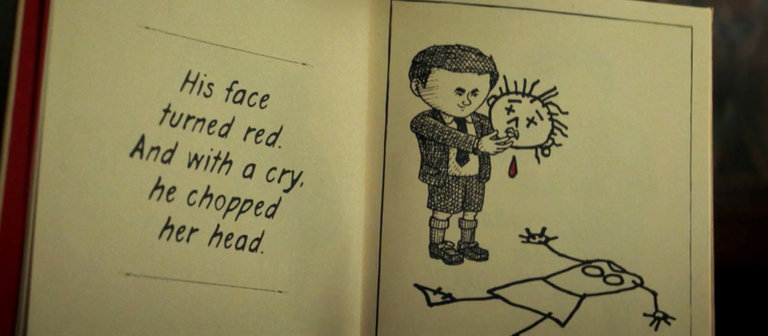
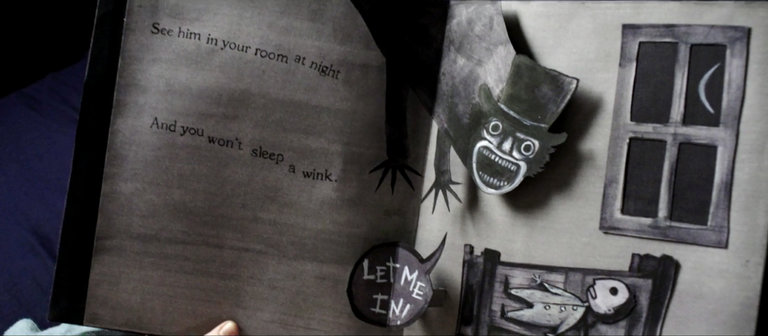
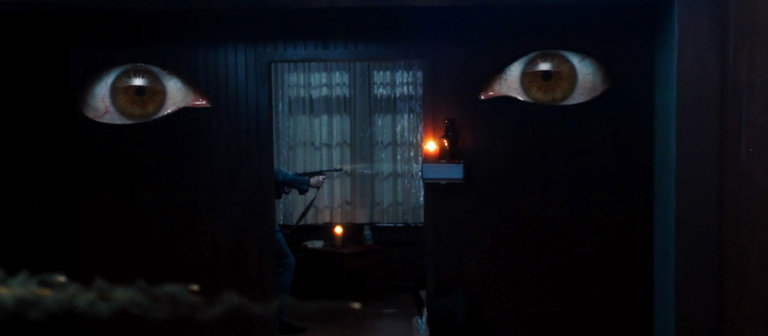
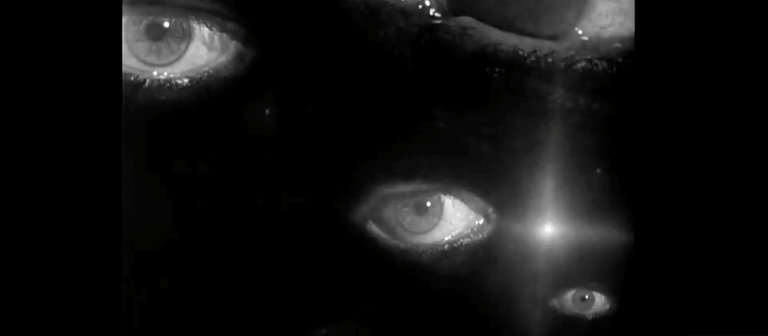
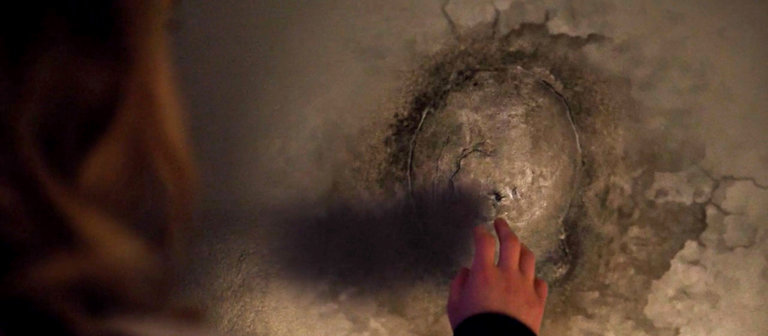
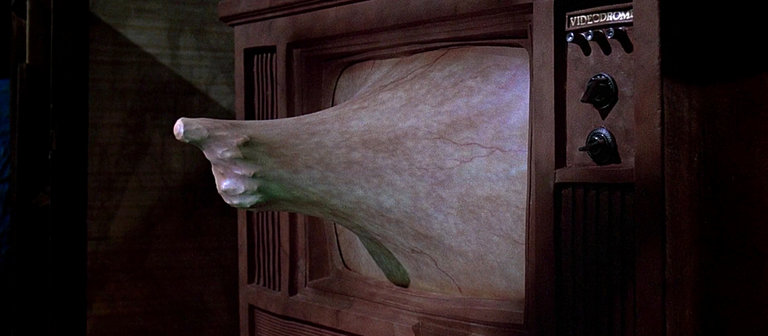
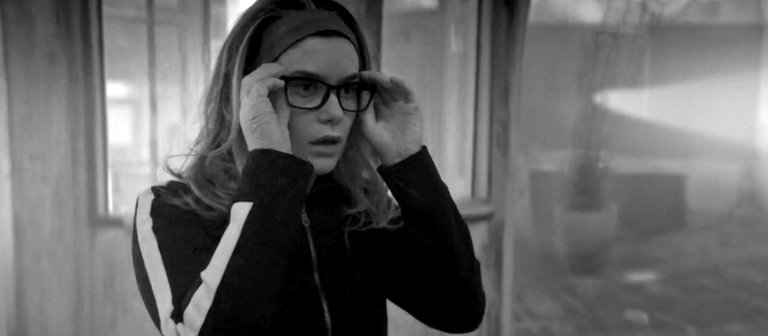
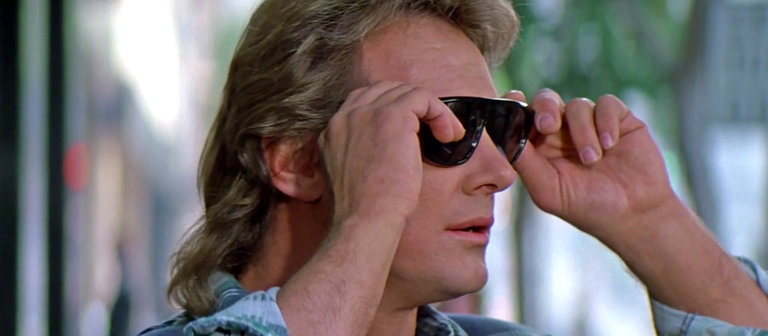
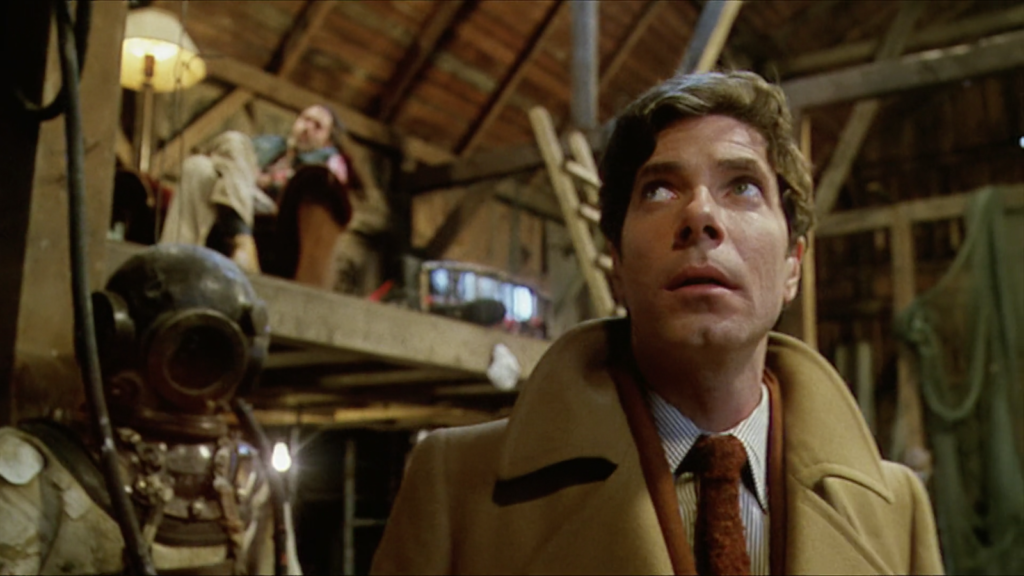
While Lynch gets the “Legion”-related headlines, another director named David seems to have left an even deeper mark. That would be David Cronenberg, who made a name for himself with a series of body-horror films that depicted the disturbing interplay between mind and matter, often with a conspiratorial backdrop of sinister secret agencies or killer corporations out to harness psychic power for their own ends.
“Legion” paints in shades of Cronenberg’s “Videodrome,” with its pulsating inanimate objects; “Shivers,” with its parasite imagery; “The Brood,” with its story of a powerful telepath under the care of a manipulative therapist (played by Oliver Reed, who may have lent both his name and his machismo to the guru figure Oliver Bird); and most especially “Scanners,” with its all-out war between rival psychic factions and a protagonist who’s telepathically tormented by the voices in his head. (“Scanners” also features a blink-and-you’ll-miss-it appearance from a very familiar-looking deep sea diver suit).
I wrote about David Cronenberg, David Lynch, and Legion’s other major horror influences for the New York Times. I have my beefs with Legion, but it’s porting its horror references into a whole different genre, as opposed to Stranger Things, which is just reheating them in the microwave and trying to pass of leftovers as a fresh-cooked dish.
Julia Gfrörer items for sale
March 24, 2017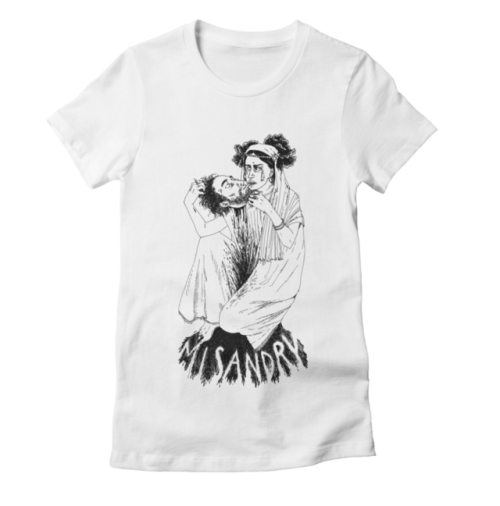

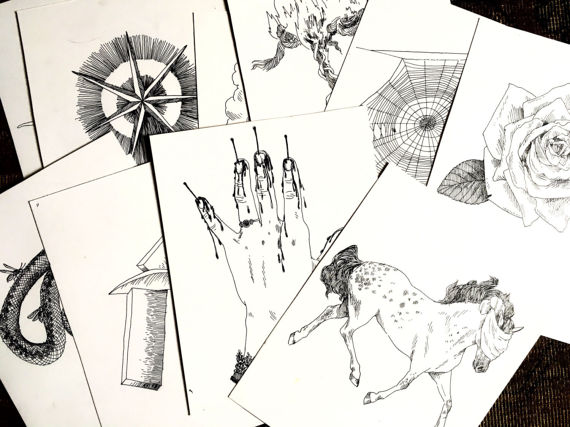

My partner Julia Gfrörer has really opened the floodgates for amazing things to purchase this week. In addition to the MIRROR MIRROR II kickstarter, she’s selling a host of t-shirt designs through her newly opened Threadless shop, including the coveted MISANDRY shirt (now available in black, white, or pink!). She’s entered a contest at Threadless for her leggings design, TEN OF SWORDS, as well, so please go vote for her. Finally, she’s selling the original art for her MMII contribution, her illustrations of medieval French heraldic devices by Claude Paradin, at her Etsy store. These things are unspeakably gorgeous up close, and it’s rare for Julia to part with this much original art all at once, so take advantage!
And please, if you haven’t done so already, consider ordering MIRROR MIRROR II through our kickstarter, or simply donating to it, and spreading the word far and wide across social media or to your friends. We’re about 65% of the way through with 9 days remaining, and we need your support. Just look at those beautiful books up there!
Process Party Episode 24: Julia Gfrörer & Sean T. Collins
March 20, 2017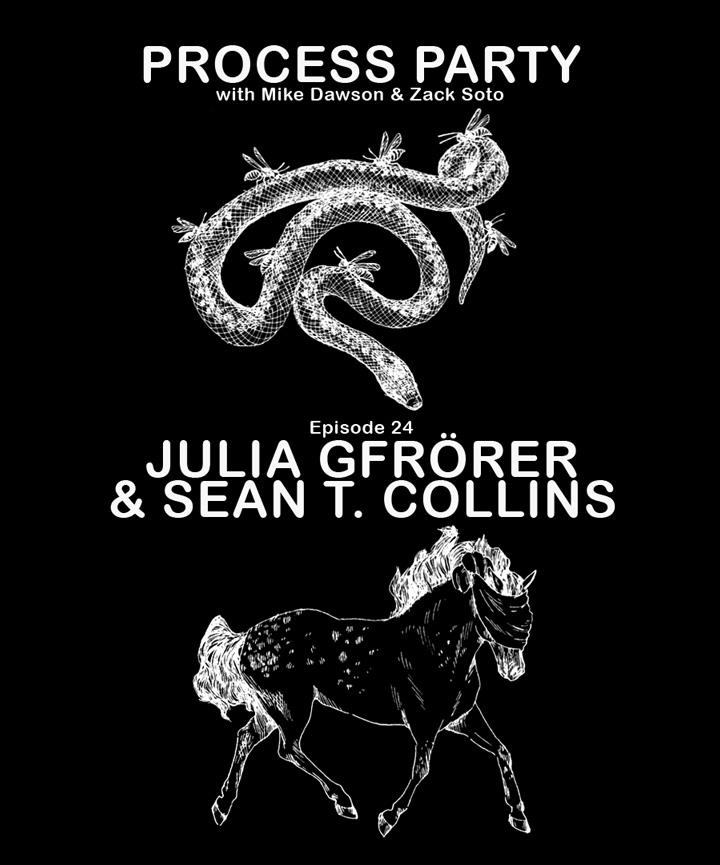
Julia Gfrörer, my partner and co-editor on the MIRROR MIRROR II anthology coming soon from 2dcloud, are the guests on this week’s episode of the Process Party podcast! Cartoonists and co-hosts Mike Dawson and Zack Soto go deep with us on the making of the book and our own contributions to it. At one point it gets really real out of nowhere! Please listen!
Meanwhile, with 12 days to go, the kickstarter for MIRROR MIRROR II and the rest of 2dcloud’s Spring 2017 collection is hovering at about the 45% mark. Please consider placing an order or making a donation. I’m proud of this book and I believe that if you enjoy what I do here, you’ll enjoy the book as well.
MIRROR MIRROR II/2dcloud Spring Collection 2017
March 5, 20172dcloud—the publisher of MIRROR MIRROR II, the gothic comics anthology edited by me & Julia Gfrörer—has launched the kickstarter for its spring collection, in which our book is featured. For just ten bucks over the MMII cover price you can get every single book in the lineup. And as I’ve said a million times, our book is exactly what we wanted it to be when we jotted names down on a napkin in the bar across the street a year ago. I couldn’t be prouder of it, or to be a part of 2dcloud. Please consider ordering or donating at the link.
As a reminder, here’s what our book is:
Mirror Mirror II
edited by Sean T. Collins & Julia Gfrörer
Lala Albert — Clive Barker — Heather Benjamin — Apolo Cacho — Sean Christensen — Nicole Claveloux — Sean T. Collins — Al Columbia — Dame Darcy — Noel Freibert — Renee French — Meaghan Garvey — Julia Gfrörer — Simon Hanselmann — Aidan Koch — Laura Lannes — Céline Loup — Uno Moralez — Mou — Jonny Negron — Claude Paradin — Chloe Piene — Josh Simmons — Carol Swain — Trungles
6 x 9″
240pp
pantone black offset
flexibound
black fore edge printing
MSRP 39.95$
A thought-provoking, richly entertaining collection from some of the most exciting comic artists working today. A must read for fans of the horrific and perverse. —Bryan Cogman, coexecutive producer/writer, Game of Thrones
An impressive collection of beautiful depictions of grotesque things and grotesque depictions of beautiful things. —Alan Resnick, writer director, Adult Swim’s Unedited Footage of a Bear and This House Has People in It
Mirror Mirror II invites the most innovative creators working in the form today and proves just how expansive the pornographic and gothic can be, encapsulating the pop cultural, fantastical, and realistic in one fell swoop. —Rachel Davies, Rookie Magazine
Editors Sean T. Collins and Julia Gfrörer have assembled an exquisitely creepy and seductive new collection of comics with Mirror Mirror II. From Uno Moralez’s pixilated noirs to Dame Darcy’s ornate Gothic ghost stories, the wide range of horror here is fantastic, as characters creep and fuck in the shadows of unimaginable darkness throughout. It’s certainly the perfect, freaky anthology for you, your lover, and all the demons in your mind. —Hazel Cills, MTV News
This Valentine’s Day, Watch ‘The Love Witch’
February 14, 2017But the most romantic thing about The Love Witch is the existence of the film itself. To call a work of art “a labor of love” is to imply a sort of jejune passion, an amateur’s enthusiasm, but nothing could be further from the case here. Taking the concept of the auteur to a whole new level, Anna Biller not only wrote, edited, scored, produced, and directed this movie — she also served as the production designer, the set decorator, the art director, and the costume designer. She personally built, knit, sewed, collected, or otherwise provided many of the film’s key props, from the witches’ altar to the characters’ jewelry to a rug that took her months to make. If the lengthy and thoughtful essays and interviews on her blog are any indication, she also served as the movie’s on-set philosopher. Short of starring in the movie herself, there’s no way The Love Witch could be more Anna Biller’s vision.
The result is unmistakably familiar. To watch The Love Witch is to enter the headspace and heartspace of another human being as surely as falling in love.
This becomes crystal clear barely five minutes into the film. After an opening driving sequence that’s a loving homage to similar scenes in Hitchock’s Psycho and The Birds, we enter the Billerverse in earnest — a world where every detail is deliberate and delightful. Tucking her cherry-red cigarette case into her cherry-red purse, Elaine emerges from her cherry-red car in her cherry-red dress, then takes her cherry-red suitcase out of the cherry-red trunk to enter an apartment full of occult artwork so colorful it’d make a Crayola 64-pack blush. Next, we’re off to a sumptuously appointed tea room in which every one of the all-female clientele is clad in cotton-candy pink; the matching floral-patterned tea set, hand selected by Biller herself, looks like something made of marzipan in the sugar-spun home of a fairy-tale cannibal witch.
By the time I hit this point in the movie, I was laughing out loud in sheer joyful admiration. Whether working in true independent form like Biller or blessed with the carte blanche freedom afforded to established and acclaimed names like Scorsese, Anderson, Tarantino, or Coen, few filmmakers have anything close to this level of confidence in their own taste and vision. Pulling this off for a single scene would be reason to celebrate. Constructing an entire film from a single intelligent, idiosyncratic worldview is close to a miracle. And from its first scene to its last, from the font choice in its opening titles to the music over the closing credits, that kind of miracle is exactly what The Love Witch delivers. Watch it with some witch you love.
Artcrime: What “Beware the Slenderman” Says About Blaming Artists for Violence
January 25, 2017There is no artist behind Slender Man, not in the panoptic, memetic form in which Morgan and Anissa encountered him. Slender Man’s “author” is the internet and the army of artists and writers and filmmakers and game designers who inhabit it. Only the accident of history, in which the original posts can be tracked down, enables us to put names to the faceless being at all. A few decades ago Slender Man would just be Bloody Mary or the killer with a hook for a hand who disrupts teenagers necking in their cars. A few centuries ago and he’d be the vampire a town feared enough to dig up graves and behead the corpses inside, or the witch who lures wayward children to their doom. With no artist in play, it becomes clear how fallacious it is to pin the blame on artists for the actions of disturbed individuals who consumed their art at all.
This is not to say art never affects society or inspires terrible things. When Jared Kushner crows about targeting ads for his odious father-in-law Donald Trump’s presidential campaign to viewers of The Walking Dead because of their concerns about immigration, he’s recognizing the fascist ideology that underlies both the show and the current administration. But art with an ideological vector connects the reader or viewer to a cohesive worldview, which, right or wrong, helps explain society and prescribe remedies for its ills. Action and reaction are to be expected.
That’s different from a movie about a pair of abused kids who become mass murderers and media superstars, or music by a glam-influenced Satanist, or creepy internet posts about a demon with no face. These merely provide monsters who embody fears and desires, not a political program. Those monsters will always exist in one form or another, and disturbed kids like Morgan and Anissa will always find them and use them as the mold into which they pour their crumbling sanity or mounting bloodlust. In blaming the art or the artist, we commit the exact same error, looking for a boogeyman to help us explain the inexplicable. We’re finding our own Slender Man to serve.
“Taboo” thoughts, Episode One
January 10, 2017As of this premiere, Tom Hardy himself is the best thing about Taboo. He’d better be, since he’s pretty much the only thing about Taboo. Everyone and everything else on the show simply reacts to his menacing presence.
What a presence it is, though. Your mileage may vary regarding Hardy’s mumble-mouthed machismo, but I find the way he carries himself a delight to watch. As Delaney, Hardy saunters across the screen like he’s en route to an ass-kicking contest that starts in ten minutes and it’s a leisurely five-minute walk away. Call it “brute casual,” a trait that he’s got it in spades, and Taboo allows him to dole it out by the shovelful.
[…]
Taboo suffers from the dull, expensive look that’s endemic to prestige TV generally and its period-piece iteration specifically. Director Kristoffer Nyholm, late of the original Danish version of The Killing, captures a few magical moments on the muddy, sun-streaked London riverbank, but beyond that, you could swap entire sets and shots with Penny Dreadful or The Knick or Peaky Blinders and only students of historical fashion would be the wiser. Moreover, the show shares its rich yet sickly “realistic” lighting and color palette with everything from The Night Of to any scene involving gangsters on Marvel’s Netflix shows; you get the sense it looks this way simply because this is how TV shows look now. (I’m no fan of The OA, but how refreshing was it to watch a drama that was brightly lit?) There’s nothing here you haven’t seen before.
Hey look, it’s my first review for Vulture! I’m talkin’ Tom Hardy and the series premiere of Taboo, which I’ll be covering for Vulture all season. (I’m exceedingly proud of that “Hardy saunters across the screen like he’s en route to an ass-kicking contest that starts in ten minutes and it’s a leisurely five-minute walk away” bit.)
They Lie About ‘They Live’: John Carpenter and the Neo-Nazi Quagmire
January 4, 2017My heart goes out to John Carpenter, a thoughtful, talented, humane artist whose contributions to our culture dwarf those of every single one of these wannabe Goebbelses combined. I can’t imagine how infuriating it must be to see your art—let alone a work of outright anti-capitalist agitprop like They Live—twisted into its ideological opposite by bigots and charlatans. I’d almost certainly have spoken out, too.
But I’m not convinced it will do any good. I’m not convinced it won’t outright hurt, in fact. Like Hillary Clinton’s “alt-right” speech during the campaign, this has now elevated the neo-Nazi smears and lies into the realm of debatable topics, the stuff of “meet the dashing new face of the extreme right” puff pieces.
“They Live is about International Jewry” is something that had never occurred to non-piece-of-shit people before this week. Now it’s a sick, sad footnote in the film’s history, a slug in its Wikipedia entry, a scratch on the lens of the sunglasses that help us see reality for what it is. That’s the goal of the racists and fascists, after all: Distort our vision until everything is as ugly as they are.
The 10 Best Horror Movies of 2016
December 16, 2016A shape-shifter, a baby-killer, a forest predator who communes with the Devil himself – the title character of Robert Eggers’ Puritan “folk tale” is a Satanic hag of the first order. And when this monster gets her claws into a 17th-century New England family excommunicated by their righteous religious neighbors, it feels less like a cathartic comeuppance for old-world bible-thumpers and more like a vicious assault on people trying their best to live and love in an unforgiving world.
MIRROR MIRROR II
December 13, 2016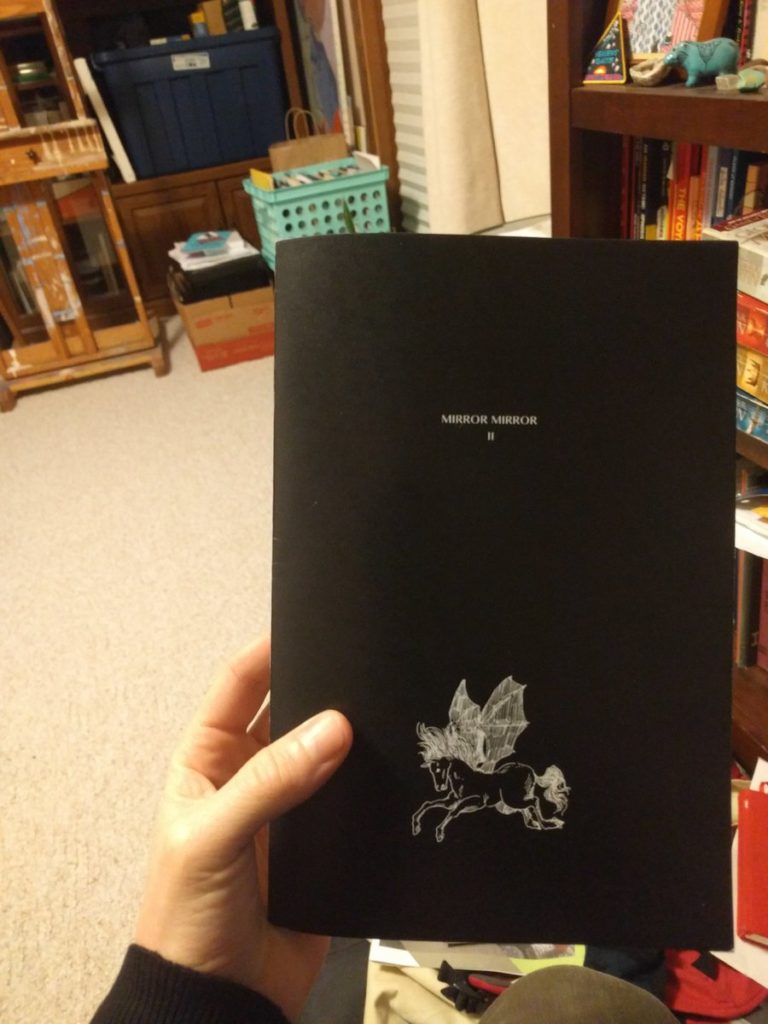
This is the preview sample for MIRROR MIRROR II, edited by me and Julia Gfrörer, coming from 2dcloud next year.
Featuring new and unpublished comics and art by Lala Albert, Clive Barker, Heather Benjamin, Apolo Cacho, Sean Christensen, Nicole Claveloux, Al Columbia, Dame Darcy, Noel Freibert, Renee French, Meaghan Garvey, Julia Gfrörer (with Claude Paradin), Simon Hanselmann (with Sean T. Collins), Aidan Koch, Laura Lannes, Céline Loup, Uno Moralez, Mou, Jonny Negron, Chloe Piene, Josh Simmons, Carol Swain, and Trungles, with an introduction by Gretchen Alice Felker-Martin.
“A thought-provoking, richly entertaining collection from some of the most exciting comic artists working today. A must read for fans of the horrific and perverse.” —Bryan Cogman, co-executive producer/writer, Game of Thrones
“An impressive collection of beautiful depictions of grotesque things and grotesque depiction of beautiful things.”—Alan Resnick, writer-director, Adult Swim’s Unedited Footage of a Bear and This House Has People in It
“Mirror Mirror II invites the most innovative creators working in the form today and proves just how expansive the pornographic and gothic can be, encapsulating the pop cultural, fantastical, and realistic in one fell swoop.” —Rachel Davies, Rookie Magazine
“Editors Sean T. Collins and Julia Gfrörer have assembled an exquisitely creepy and seductive new collection of comics with Mirror Mirror II. From Uno Moralez’s pixilated noir to Dame Darcy’s ornate Gothic ghost stories, the wide range of horror here is fantastic, as characters creep and fuck in the shadows of unimaginable darkness throughout. It’s certainly the perfect, freaky anthology for you, your lover, and all the demons in your mind.”—Hazel Cills, MTV News
The Fascism of ‘The Walking Dead’
December 13, 2016“We can boil fascist ethics down to one word: Dominate,” says professor Stephen Olbrys Gencarella of the University of Massachusetts at Amherst, who has taught about the show as well as written about it for the academic journal Horror Studies. “It’s true that fascist aesthetics anchor many shows and films, especially in the sci-fi and fantasy genres. And of course violence is nothing new; it’s the norm in American media. Other shows out there are hitting similar themes, and that shouldn’t surprise us given the anxieties of our times. But so many of those other shows demonstrate the consequences for violence or debate the ethical complexities of living with others who are different, or show the moral turmoil of people who enact or suffer violence. The Walking Dead is the only show that actively courts, rather than critiques, fascist ethics, and suggest that it’s the only viable solution to perceived threat.”
What do those ethics entail? “In fascist mentalities, kindness, empathy, and sympathy are seen as weaknesses, critical self-reflection is seen as a danger to security, and discussion and negotiation is seen as failure,” Gencarella says. “Existence is a tragic struggle to be won or lost.” This mentality can be traced back to the fascist Ur-text, The Doctrine of Fascism, ghostwritten for Benito Mussolini by his Minister of Education Giovanni Gentile. “The Doctrine is clear that perpetual war is the preferred mode of existing with others who are different, and especially to crush the weak in order to demonstrate that one is strong,” Gencarella says. “Fascists want the apocalypse. And the history of actual fascist movements has always been cemented by the kind of storytelling that TWD valorizes and perpetuates.” It’s this perspective, and the political doctrines likely to be appealing to those who respond to it, that the Trump campaign seemingly recognized when targeting the show’s viewers. “Watching Trump and Negan on television at the same time makes perfect sense,” Gencarella says. “I don’t say that because I think all Trump supporters are fascists. But it’s also telling that the campaign thought The Walking Dead viewers would readily equate immigration with an apocalypse for which violence is the only solution.”
I wrote about the fascism of The Walking Dead for Vulture. This is a longstanding bugbear of mine as you know, and this is the first standalone piece I’ve written about it.
The Mirror
December 12, 2016
The makers of Unedited Footage of a Bear and This House Has People in It are back with a new project called The Mirror for IFC. I don’t want to give much away, but let’s just say that given my recent reading habits as discussed elsewhere on this blog, I was very, very excited by this. Perhaps you will be too.
“Westworld” thoughts, Season One, Episode Ten: “The Bicameral Mind”
December 5, 2016SPOILER ALERT
We’ve reached the center of the Maze. It’s not a physical location, a place in the park where the safety catch comes off and the guests can play for keeps. It’s a metaphor for consciousness, the inward journey required for an android to become truly alive. In the case of Dolores, it’s also the downward spiral to her buried identity, i.e. Wyatt, the genocidal maniac destined to create a new robot-friendly world from the human blood of the old.
But tonight’s movie-length season finale – “The Bicameral Mind” – proves that the Maze isn’t such a bad image for the show itself. For all its faults, Westworld‘s first season wasn’t an affront or a disaster. There’s enough entertainment value in each episode, particularly if you just so happen to enjoy sci-fi thrillers, no matter how skeptical you are of their overall philosophical or dramatic merit. But the journey from the starting point to the center of it all reveals just how distant “enjoyable” can be from, you know, good. Right up to the end, the show’s inaugural season was watchable – and ultimately dismissible.
I reviewed last night’s season finale of Westworld for Rolling Stone. Like I said, it was never a show I dreaded watching — I was never like “oh god, here we go, time to watch another fucking Westworld,” you know? I actually kind of looked forward to it each time. I just never looked backward to it afterwards.
Anyway, as I try to explain in the review, the show succeeded best as a straightforward genre thriller and foundered in its attempts to be more than that. In terms of the twists and revelations, the problem was less their existence and more the simultaneously slovenly and byzantine way in which the storylines that led to them unfolded. Basic structural stuff.
“Westworld” thoughts, Season One, Episode Nine: “The Well-Tempered Clavier”
November 28, 2016It’s not the content that’s to blame for the episode’s shortcomings, but the delivery mechanism. From start to finish, the hour’s events move in fits and starts, with the herky-jerky rhythm of a malfunctioning host. How else could it work, when nearly all its focal-point characters are constantly moving in and out of awareness? Teddy wakes up from being shot with an arrow, then is promptly killed again. The Man in Black watches all of this smugly, until he gets knocked out; the next morning he realizes he’s about to get hanged from a tree courtesy of a noose and a skittish horse. He narrowly escapes, but only to have his narrative stopped in its tracks once again by a visit from Charlotte Hale, one of his fellow members of the park’s board of directors. Logan torments his estranged brother-in-law-to-be and Dolores until the latter escapes and the former pretends to forgive him. Cue the smirking asshole waking up the next morning with all his robotic Confederado comrades massacred and the born-again-hard William firmly in charge.
The self-aware hosts go through even more fake-outs and double-backs. Dolores shifts back and forth between locations, time periods, and states of consciousness so frequently that it’s impossible to keep track of – deliberately so, but that doesn’t prevent it from undercutting the emotional impact of her discovery that she murdered her maker. And poor Bernard splits his time between getting switched on and off by Maeve and Ford on the one hand, and being jolted in and out of his robotic consciousness and memories. Many of said memories involve killing other characters, like Theresa and Elsie, just to add to the staccato storyline. Sometimes he’s not Bernard at all, but Arnold … or at least Dolores’s deep-rooted memory of him. His Doctor-ordered suicide at the end of the episode comes as sweet relief after the mindfucks he’s been through. When the storyline that suffers the fewest interruptions of this sort (i.e. Maeve’s rebellious arc) involves our heroine breaking down a fellow robot’s mind before deliberately burning them both to death en flagrante delecto, you know things have gotten way too complicated.
Add it all up and it’s like watching a version of The Usual Suspects in which both Chazz Palmintieri and Kevin Spacey’s characters are constantly getting hit in the head with a baseball bat. (And are then forced to try and pick up the story where they left off hours later.) There’s just no way for it to sustain momentum, tension, or suspense – let alone make its plot twists and shocking revelations work properly – when every character is so busy just trying to stay sentient and upright.
